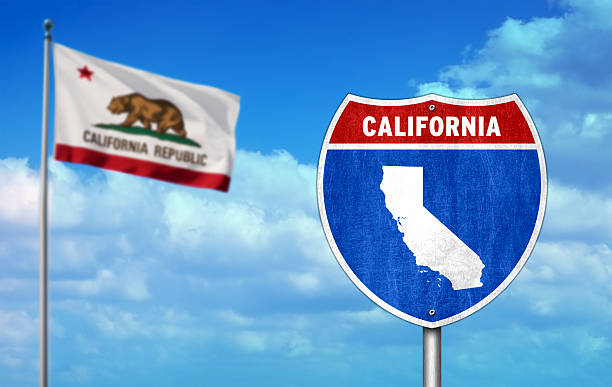California’s AB 288 Expands Labor Oversight
Last Updated on October 22, 2025 by MyHRConcierge
The landscape of labor relations in California is undergoing a major shift with the passage of Assembly Bill 288 (AB 288) – legislation that gives the state greater authority to address unfair labor practices when federal enforcement falls short. Designed to fill perceived gaps in the National Labor Relations Board (NLRB) process, AB 288 empowers the Public Employment Relations Board (PERB) to step in when federal cases face prolonged delays. This change signals a new era of oversight for private-sector employers in California, bringing both heightened accountability and increased compliance complexity.
Understanding the New Law
In September 2025, the state of California enacted Assembly Bill 288 (AB 288): Employment: Labor Organization and Unfair Practices. This is a significant expansion of the state’s role in labor relations. The new law allows PERB to intervene in certain private-sector labor disputes when the NLRB fails to act within a reasonable period. AB 288 was signed into law by Governor Gavin Newsom on September 30, 2025, and is scheduled to take effect on January 1, 2026. However, its rollout may be influenced by ongoing legal challenges questioning whether the state’s expanded authority conflicts with federal labor law.
AB 288 is designed to address long-standing concerns about delays in the federal labor process. Lawmakers argued that the NLRB’s backlog often leaves workers and unions without timely remedies for unfair labor practices. By granting PERB authority to review these cases, California aims to provide a more responsive system for resolving disputes involving collective bargaining, union representation, and employer conduct.
Why AB 288 Matters
For decades, the National Labor Relations Board (NLRB) has been the primary federal agency overseeing private-sector labor relations. In recent years, concerns have been raised about delays in case processing, the scope of available remedies, and the overall pace of enforcement. Assembly Bill 288 (AB 288) introduces a state-based alternative intended to address these issues by allowing the Public Employment Relations Board (PERB) to consider certain cases when the NLRB has not issued a decision or remedy within six months of filing.
Under this new framework, PERB may investigate unfair labor practice allegations, certify bargaining representatives, and issue binding orders. The bill also creates a PERB Enforcement Fund, which will be supported through civil penalties assessed against employers found to have engaged in repeated or willful violations. These penalties can reach up to $1,000 per employee, per violation, establishing a stronger state-level enforcement structure alongside existing federal mechanisms.
Implications for California Employers
For private-sector employers in California, AB 288 introduces additional considerations related to compliance and oversight. The legislation does not replace federal law but operates alongside it, meaning both the NLRB and PERB may have roles in certain cases, depending on the circumstances and timing of a dispute.
The expansion of PERB’s authority could result in more timely investigations and additional avenues for resolving labor matters. At the same time, the potential for overlapping jurisdictions may create administrative challenges, as employers navigate differing procedures and timelines. This dual framework may require businesses to coordinate their responses carefully to ensure compliance with both state and federal requirements.
AB 288 also establishes provisions for civil penalties and binding state-level orders in cases involving repeated or willful violations. As a result, employers may wish to review their current labor relations practices and documentation processes to ensure consistency and preparedness under the evolving regulatory landscape.
Legal Challenges and Preemption Concerns
Although AB 288 has been celebrated by labor advocates, it raises complex legal questions regarding federal preemption. The National Labor Relations Act (NLRA) traditionally prevents states from regulating areas already covered by federal labor law.
Legal experts anticipate that AB 288 will face constitutional challenges, particularly around whether California can assume jurisdiction in matters that fall squarely under the NLRA. Courts will likely need to determine the boundaries of state authority and whether California’s new process conflicts with federal oversight.
Until those challenges are resolved, employers must operate under the assumption that both PERB and the NLRB could exercise authority in certain disputes. This overlapping structure will require careful attention to timing, documentation, and the substance of any labor relations communications.
The Bottom Line
AB 288 reflects California’s growing willingness to assert state authority over traditionally federal labor matters. While its intent is to strengthen worker protections and expedite remedies, the law also introduces uncertainty and greater compliance burdens for employers.
Businesses should view this development as an opportunity to evaluate their labor relations strategies, strengthen internal compliance frameworks and ensure readiness for increased scrutiny. As PERB begins implementing AB 288, staying informed and prepared will be critical to minimizing legal exposure and maintaining positive employee relations.
For more information on how to enhance your organization’s government compliance efforts, contact MyHRConcierge at 855-538-6947 ext.108, ccooley@myhrconcierge.com. Or, schedule a convenient consultation below:
© 2025 MyHRConcierge. All rights reserved.

